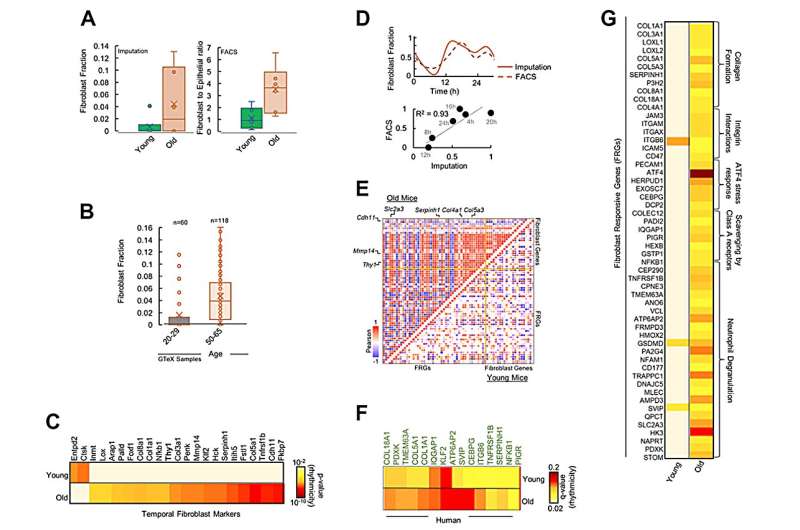This article has been reviewed according to Science X's editorial process and policies. Editors have highlighted the following attributes while ensuring the content's credibility:
fact-checked
proofread
Aging alters pancreatic circadian rhythm: Study

A new research paper titled "Reorganization of pancreas circadian transcriptome with aging" has been published in Aging.
The evolutionarily conserved circadian system allows organisms to synchronize internal processes with 24-hour cycling environmental timing cues, ensuring optimal adaptation. Like other organs, the pancreas function is under circadian control. Recent evidence suggests that aging by itself is associated with altered circadian homeostasis in different tissues that could affect the organ's resiliency to aging-related pathologies.
Pancreas pathologies of either endocrine or exocrine components are age-related. Whether pancreas circadian transcriptome output is affected by age is still unknown. In their new study, researchers Deepak Sharma, Caitlin R. Wessel, Mahboobeh Mahdavinia, Fabian Preuss, and Faraz Bishehsari from Rush University and University of Wisconsin-Parkside profiled the impact of age on the pancreatic transcriptome over a full circadian cycle and elucidated a circadian transcriptome reorganization of pancreas by aging.
"Here we carried out a 24-h circadian transcriptomic analysis of pancreas from male mice at young and old ages," the researchers explain.
The team defined a comprehensive circadian transcriptome landscape and identified biological pathways that are reflective of aging pancreas. Additionally, analysis of the pancreatic microenvironment revealed novel mechanistic insights into the fibroblast-mediated regulation of rhythmicity in aged pancreas. The team suggests that the circadian transcriptome in aging pancreas reorganizes in response to age-specific signals from the cellular microenvironment, primarily modulated by fibroblasts.
"Our study highlights gain of rhythms in the extrinsic cellular pathways in the aged pancreas and extends a potential role to fibroblast-associated mechanisms," the team concludes.
More information: Deepak Sharma et al, Reorganization of pancreas circadian transcriptome with aging, Aging (2023). DOI: 10.18632/aging.204929




















